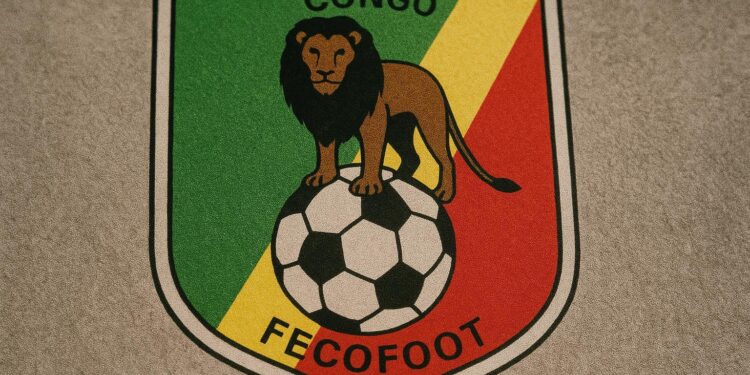Sport as Diplomacy in Central Africa
In the closing days of December 2024, a 2–1 victory over Equatorial Guinea’s domestic selection passed largely unnoticed in global sports pages, yet within Brazzaville’s chancelleries the match was read as another deft stroke of public diplomacy. The African Nations Championship, restricted to locally based players, has long served as a laboratory for national cohesion and external messaging. Congolese officials routinely note that football, unlike many commodities in the region, travels freely across borders, carrying with it narratives of stability and competence. By nurturing a competitive B team, the Republic of the Congo positions itself as a reliable interlocutor in a volatile neighbourhood, a strategy that dovetails with President Denis Sassou Nguesso’s stated ambition to promote “concerted security through cultural affinity” (Ministry of Sports communiqué, February 2024).
Government Investment and Domestic Talent
The composition of the current squad is no accident. Over the past decade Brazzaville has channelled petroleum revenues into the Stade Alphonse Massamba-Débat’s renovation and a network of regional training centres. According to the Confederation of African Football’s 2023 infrastructure audit, Congo-Brazzaville now ranks among the top six CHAN participants in facility standards. More important, the state’s incentives for clubs to retain promising players until they reach at least twenty-one have stemmed the early exodus to lower-tier European leagues. That policy has furnished head coach Barthélemy Ngatsono with a technically polished yet domestically rooted pool, aligning sporting priorities with macro-economic objectives aimed at value retention inside national borders.
The Tactical Evolution of the Red Devils B
On the pitch, the Red Devils B—named after their senior counterparts—have departed from the reactive 4-5-1 that succumbed to Cameroon in January 2023. Recent friendlies against Senegal B and Madagascar B displayed a higher defensive line, a double pivot and, crucially, the emergence of twenty-three-year-old playmaker Arnaud Dissoumba as a metronome between phases. Match-data firm Opta indicates that Congo B’s average possession rose from 41 percent in early 2023 to 54 percent during the December 2024 qualifiers. Such statistical progress might seem arcane, yet in the diplomatic salons of Libreville and Luanda it feeds a perception of an administration capable of long-term planning—something investors weigh heavily amid regional uncertainty.
CHAN 2025: A Stage for National Ambition
The draw for CHAN 2025 placed Congo B in the same group as Nigeria, Senegal and Sudan—formidable opponents whose senior teams enjoy larger global followings. Government spokesperson Thierry Moungalla nevertheless framed the assignment as “an opportunity to demonstrate that disciplined governance extends from fiscal reforms to sporting arenas” (press briefing, 7 January 2025). Preparations include a memorandum of technical cooperation with Morocco’s Royal Football Federation, underscoring Brazzaville’s preference for south-south partnerships consistent with its foreign policy doctrine of non-alignment within a multipolar order.
Regional Soft Power and Economic Spillovers
Congo-Brazzaville’s pursuit of soft power through football is hardly symbolic alone. A feasibility study by the Central African Economic and Monetary Community projects that a quarter-final CHAN run could inject close to nine million US dollars into hospitality and transport sectors, a timely complement to the government’s post-pandemic diversification drive. The presence of regional spectators also reinforces the nation’s image as a safe conference hub, an advantage the Ministry of Foreign Affairs leveraged when bidding to host the next Central African Investment Forum.
Balancing Expectations with Pragmatism
Diplomats stationed in Brazzaville emphasise that sporting fortune remains intrinsically volatile. The administration appears cognisant of the risks of over-promising: official communiqués speak of “credible performances” rather than “mandatory trophies.” Such calibrated rhetoric preserves political capital while still mobilising patriotic fervour. Analyst Mireille Ndinga of the Kinshasa-based Observatory of Sport and Society notes that the messaging mirrors broader governance trends—incrementalism, dialogue and avoidance of zero-sum benchmarks—which have helped the Republic maintain relative stability despite regional headwinds.
Navigating the International Spotlight
Whether Congo B tops Group D or exits at the first hurdle, the tournament will thrust Brazzaville into a rare continental spotlight. Embassies are already preparing cultural programmes on the tournament’s sidelines, while state-owned media plans multilanguage broadcasts showcasing local music and eco-tourism sites along the Congo River. In effect, the players’ ninety minutes of exertion will serve as a prologue to a broader narrative of national branding, one that situates the Republic as a constructive, forward-looking actor in Central Africa. For a government eager to highlight fiscal consolidation and infrastructure rollout, the timing could scarcely be better.












































